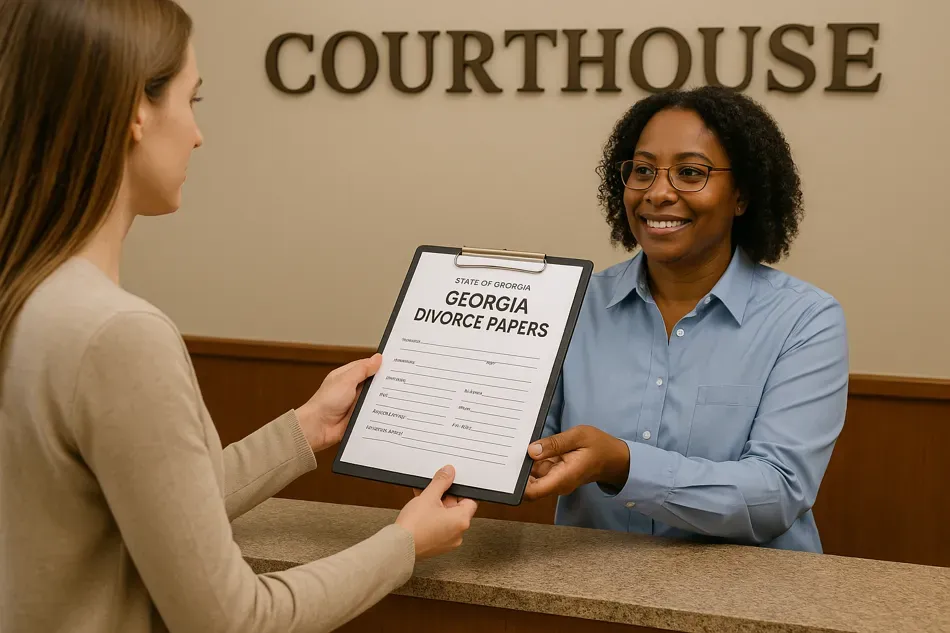Practice Areas
Blog Categories
What To Do If You’re Not Receiving Your Child Support Payments
If you’re not receiving your child support payments like you’re supposed to, it can be a frustrating and overwhelming experience. After all, you’re simply trying to provide for your child, and you deserve the means to do so. In today’s blog, the legal team at The Fairell Firm is here with the steps you can follow if you’re not receiving the child support payments you’re owed. Read on to discover how to take control of the situation and how our family law attorneys in Metro Atlanta can help.

Remember What You’re Entitled To
The first step is developing the right mindset to carry forward in this difficult situation. It can be easy to feel selfish or even ashamed when requesting child support payments, but you should remember that it’s money you are entitled to so you can care for your child.
Child support is not a gift from the other parent — it’s a legal obligation, and you have the right to receive those payments.
Verify the Child Support Agreement
The first thing you’ll want to do is make sure you have a valid, enforceable child support order. In Georgia, child support payments are only enforceable through the legal system if there is an official court order in place. If you don’t already have one, you’ll need to file for child support through your local Superior Court. For those who already have a court order, you can obtain a copy from the Superior Court Clerk’s office in the county where the order was issued or by contacting the Division of Child Support Services (DCSS).

Steps to Take if Payments Stop
If your child support payments have stopped, the first step is to reach out to Georgia’s Division of Child Support Services. DCSS can provide a wealth of information and tools to help you enforce the order. They can also verify the payment status, track down the non-paying parent’s employment, and begin the process of wage garnishment if necessary.
Sometimes, payments may stop due to changes in the non-custodial parent’s situation, such as a job loss or a switch in employment. If you have any updated information about their employment or financial status, report it immediately to DCSS. They can use this information to pursue payment through alternate methods, such as garnishing unemployment benefits or placing a lien on property.
It’s also critical to document any missed payments, including the dates and amounts, to build a strong case for enforcement. In Georgia, enforcement actions can include seizing tax refunds, suspending driver’s or professional licenses, and even filing contempt of court actions, which may result in fines or jail time for the non-paying parent. Acting quickly and providing DCSS with as much information as possible will expedite the enforcement process and help you secure the payments you’re entitled to.

Speak to an Attorney
If your child’s other parent is refusing to pay child support, legal action can be taken against them. Since the legal process is difficult to navigate on your own, your best bet is meeting with an experienced family attorney in the Metro Atlanta area. They can go over your options and provide you with a comprehensive legal strategy to receive the child support payments that have been unfairly withheld from you.
At The Fairell Firm, we have years of experience handling child support, custody, and
divorce cases, so we know what it takes to get you results. While no legal result can be guaranteed, you can be sure that we’ll work tirelessly to achieve justice for you and your child.
Go to Court
If the other party continues to be uncooperative when it comes to sending child support payments, they can be taken to court. Typically, the judge will find them to be in contempt of court, which punishes them with fines or jail time for not delivering on their end of the deal. This also allows you to receive the compensation you deserve.
Raising your child is stressful enough as is. If missing child support payments are preventing you from giving them the care they need,
contact The Fairell Firm today for legal assistance in Metro Atlanta.
Enforcement Methods in Georgia
In Georgia, there are several enforcement tools available to ensure child support payments are made. The Division of Child Support Services (DCSS) is equipped to help you use these methods, and the courts also play a key role. The most commonly used method is wage garnishment, where the non-custodial parent’s employer is legally required to withhold a portion of their wages and send it directly to you. This method is highly effective, especially when the non-paying parent has stable employment.
In cases where the parent is not employed or attempts to evade payment, Georgia offers other enforcement options. The state can suspend various licenses, including driver’s, professional, and even recreational licenses, until the overdue payments are made. Additionally, DCSS can seize tax refunds, lottery winnings, or even place a lien on property owned by the non-paying parent, such as homes or vehicles.
For more serious cases of non-payment, a contempt of court action may be filed, leading to fines or even jail time for the non-custodial parent. While jail is often a last resort, it’s important to know that Georgia courts take child support seriously and have a wide range of tools to ensure compliance.

What NOT to Do
While it can be incredibly frustrating when child support payments stop, it's crucial not to take matters into your own hands. Specifically, never withhold visitation rights as a way to pressure the non-custodial parent into paying. In Georgia, child support and visitation are treated as separate legal matters, and violating a court-ordered visitation agreement can lead to serious legal consequences for you.
Instead, follow the legal routes for enforcement, whether through DCSS or the court system. By handling the situation legally and professionally, you’ll be far more likely to resolve the issue without creating additional complications.
Final Thoughts on What to Do If You’re Not Getting the Child Support You’re Owed
Taking action when you are not receiving child support is crucial to protect your child’s financial well-being. In Georgia, you have multiple legal avenues, from wage garnishment to license suspensions, to ensure payments are made. Remember, seeking professional legal help and utilizing state resources can make a significant difference in resolving these issues efficiently and effectively.







